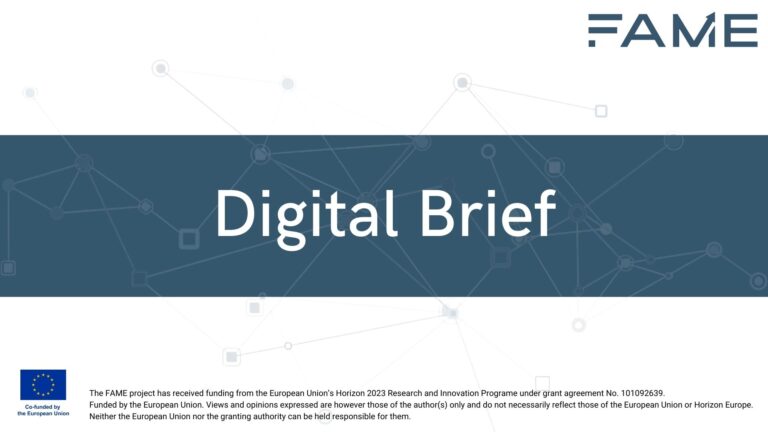Pilot #7: Assessing the Quality and Monetary Value of Data Assets
Partner(s):
This pilot leverages FAME’s marketplace to optimize the use of different types of industrial data sets. It assesses data quality and monetizes insights, helping industries improve predictive maintenance and cyber-insurance services.
Detailed description and Objectives
Motor Oil Hellas makes use of the sensors and cyber-physical systems in its oil refineries to gather a great amount of raw data. Targeting the growing industrial data market, this pilot uses FAME to evaluate and monetize industrial data assets. By assessing the quality of datasets, predictive models, and algorithms, it provides insights for optimizing data usage in applications like predictive maintenance.
A significant aspect of Pilot 7 is to unveil the mechanisms driving the valuation of these data assets to inform and enhance cyber-insurance services, specifically in estimating premiums. The assessment process includes a meticulous quality analysis, examining attributes such as volume, completeness, locality, and context of the data assets.
The overarching objectives of Pilot 7 are to extract the inherent value from MOH’s data assets and to lay the groundwork for strategic investments and the development of robust machine learning systems. These systems are intended to predict potential challenges in assets behavior, thereby enabling proactive management and informed decision-making. Ultimately, this pilot seeks to leverage the FAME marketplace to transform raw data into actionable insights and tangible value.
FAME Applications
Pilot 7 incorporates several FAME applications to achieve its objectives. These include the IIoT-Data-Quality-Assessment service, which analyzes the quality of high-frequency data from Industrial Internet of Things sensors. The SAX4BPM library provides services and capabilities to support the generation of explanations for business processes, using Large Language Models.
Additionally, the pilot utilizes an XAI Dashboard for Time Series Pattern Analysis, which combines hierarchical Markov chain modeling with LLM analysis to detect, visualize, and explain patterns in MOH production data. These components collectively enable the pilot to assess data quality, derive value-added assets, and provide insights through explainable AI, all within the FAME marketplace.
This use case focuses on assessing the quality of various industrial data assets, including raw sensor datasets, pre-processed datasets, and predictive models. The assessment involves evaluating characteristics like volume, completeness, locality, and variety of data sources. A quality score is assigned to each asset to facilitate comparative evaluation and enable trading and pricing within the FAME marketplace. The pricing schemes are correlated with the effort involved in enhancing the data quality. This use case also aims to establish insured values or premiums for cyber-insurance, based on the data assets’ monetary value.
This use case involves utilizing FAME project’s analytics tools to develop new ML models from existing data. The resulting data assets are intended to be trustworthy and energy-efficient. These new assets will be made available in the FAME marketplace, where they can be priced and traded. A key objective is to highlight the added value of assets produced within FAME, emphasizing their trust and energy efficiency compared to assets from outside the FAME ecosystem. This use case also facilitates the monetization of confidential data without exposing the raw data.
To get in touch with a representative of Pilot #7, write to us at info@fame-horizon.eu


